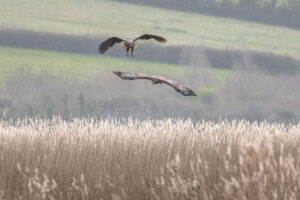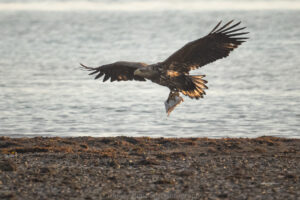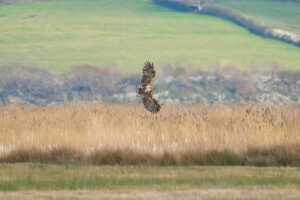Summary
The socioeconomic feasibility of reintroducing white-tailed eagles to the Isle of Wight was explored as part of a wider feasibility study in 2019, led by Forestry England and the Roy Dennis Wildlife Foundation. Following a successful reintroduction, Forest Research were commission to assess if and how public perceptions of white-tailed eagles and the reintroduction project had changed relative to pre-reintroduction perceptions.


Research Objectives
| • Design an online survey capable of capturing the perceptions of the public, including different interest groups (shooting, fishing, birdwatching communities etc.) • Work with partners to reach a sample comparable with that consulted in the pre-reintroduction feasibility study. • Determine the level of support/opposition for the reintroduction of white-tailed eagles in the study area, and assess how perceptions have changed since the reintroduction took place. • Assess likely economic impacts in the study area e.g. respondents willingness to visit as a result of the reintroduction. • Assess the public’s appetite for the reintroduction of other native species, as well as the drivers for their attitudes. |
Findings and Recommendations
| A survey of 1590 members of the public revealed exceptionally high support for the reintroduction of white-tailed eagles into the study area. Not only has support within the wider sample and those counties neighbouring the Isle of Wight remained high, support on the Isle itself appears to have increased from the somewhat polarised state observed pre-reintroduction. As such, high levels of support now appear to be ubiquitous across geographic boundaries, as well as age groups, genders and interest groups.
A large proportion of respondents also expressed that they would be more likely to visit the Isle of Wight – or to recommend others do so – as a result of the reintroduction. Indeed, a substantial number of those who have visited noted that the presence of white-tailed eagles had played a part in attracting them to the Isle. As such, the reintroduction of white-tailed eagles offers the potential to generate notable eco-tourism benefits for the local area, and may already be doing so. Almost all respondents expressed support for the reintroduction of additional native species to the south of England. Of the minority who remain opposed to the reintroduction of white-tailed eagles and other native species, very few have ill-feelings towards the species, or concerns about their impacts. Instead, comments tended to relate to concern for the welfare of the reintroduced individuals, a preference for resources to be directed towards other conservation projects/priorities including existing species under threat, or a preference for the natural expansion of lost species back into their former range. A findings report (below) includes a more detailed breakdown of the results.
|
Our Involvement
Forest Research led the survey design, analysis and reporting. Forestry England and the Roy Dennis Wildlife Foundation promoted and disseminated the survey and provided feedback throughout.

